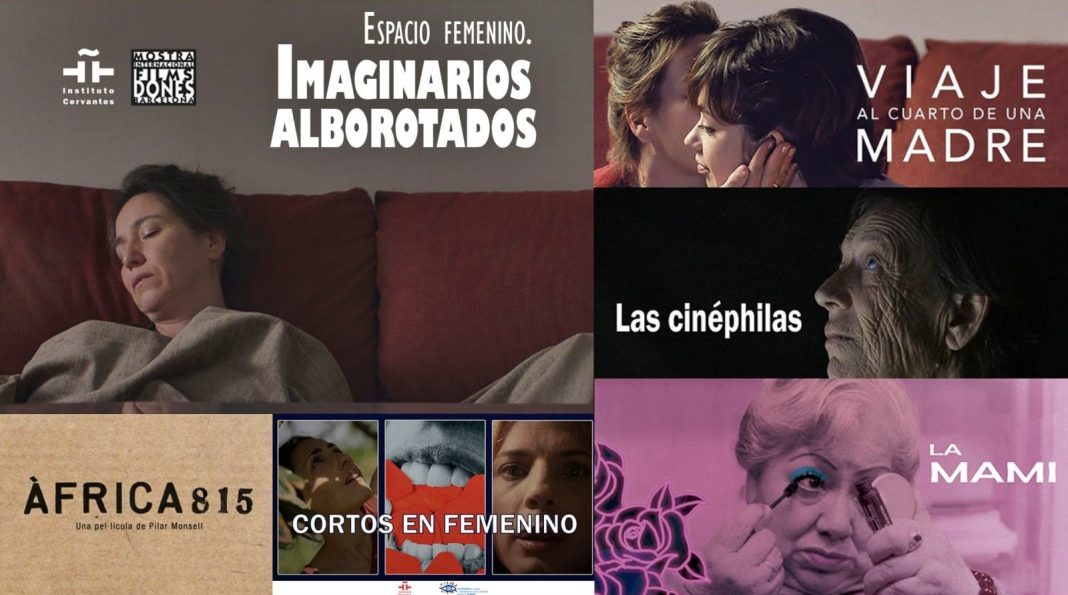This March 2024, Instituto Cervantes will showcase their annual film series ‘Espacio Femenino,’ to honor the works and culture created by women for women. Screening will be at 2 PM on the following dates: March 7, 14, 16, 21, and 23 for the general audience and will take place at Instituto Cervantes Intramuros branch. Viewing is free for all with a first come first serve seating arrangement.
Espacio Femenino will present four feature films and three short films, which were directed by women to showcase their stories of recent years. The series will have both fiction and nonfiction films, and plays on the theme of disorderly imaginaries, all of which will highlight the characters of their authors in displaying quality Spanish cinema accomplished with a female signature.
On 7 March, Thursday, the film series officially starts with África 815 (2015), a creative documentary written, produced, and directed by Pilar Monsell using her father’s photographs and diaries. The documentary reconstructs the complex stories of her father during his military service in the Spanish colony of the Sahara in 1964. The archival work intricately pieced together the experiences of Manuel Monsell’s life through the perspective of the narrator in contrasting the myths of romantic love and the ideal family with the true desires and the need to find oneself. Pilar Monsell is a filmmaker, editor, scriptwriter, visual artist and researcher best known for her experimental cinema, film-performance or memory and archive film.
The film series will continue on 14 March, Thursday, with La mami (2019), written and directed by Laura Herrero Garvín to unfold the raw realities of escort ladies at the Barba Azul cabaret in Mexico City. This particular piece takes on a social, ethical and tremendously human portrait of the world of call girls. The film mainly follows Doña Olga, known as “Mami” –a former cabaret performer with more than 45 years in the business who now is in charge of the women’s restroom. Multiple stories come to life as the routine, struggles, and conversations of the cabaret girls take its place in the intimate space for women. La mami was awarded at multiple film festivals and was the winner of the Best Film at the Cinema Tropical Awards or the FIPRESCI award from film critics.
On 16 March, Saturday, three short films take the stage with Cortos en femenino: Oro rojo (2021), written and directed by Carme Gomila; Escamas (2020), co-written and directed by Katherina Harder, and Sorda (2021), written and directed by Nuria Muñoz Ortiz and Eva Libertad. Oro Rojo is an animated social commentary on the issues of environmental exploitation, racism, and capitalism through the lives of three Moroccan immigrant women working in the countryside of Huelva. Delving into the concept of intimate representations in self-discovery, Escamas follows the story of Alicia, a woman who had to undergo mastectomy due to breast cancer, and her neighbor, Lucia, a transsexual woman, as they find acceptance with the help of one another. The final segment of cortos en femenino, Sorda, is the first sign language film with a Goya award nomination that tells the story of a young couple, Angela and Darío, facing their new challenge of having a child as Angela also struggles to fight the war of being a deaf woman in a prejudiced society.
The fourth film will be on 21 March, Thursday, with the showing of Las cinéphilas (2017), the first feature length documentary in a trilogy about art and its meaning in the passage of time, written and directed by María Alvarez. It focuses on three retired women, living in Buenos Aires, Madrid, and Montevideo as they explore their passion for cinema. Las cinéphilas dismantles the stereotypes traditionally associated with a male-centered culture of cinema told through the eyes of the camera and the stories of these women.
Espacio Femenino will conclude the series on 23 March, Friday, with Viaje al cuarto de una madre (2018), an award-winning debut film that encompasses the relationship between a mother and daughter as they learn their own identity as women and as individuals. Leonor and her mother Estrella’s journey to self-discovery starts as their relationship falters when Leonor decides to leave their home. It reflects on the roots of family ties as everyday gestures and communication change their perspectives of their identity while they learn to live separately. Viaje al cuarto de una madre has won the Youth Award at the San Sebástian Festival and the Asecan Award for Best Film.
The film series, presented by Instituto Cervantes de Manila in collaboration with the Mostra Internacional de Films de Dones de Barcelona, and the Embassy of Spain in the Philippines, will be in Spanish with English subtitles. Entrance is free. For further information and updates on the film series, please visit Instituto Cervantes’ Facebook site (www.facebook.com/InstitutoCervantesManila) or log on into: https://cultura.cervantes.es/manila/en/espacio-femenino.-imaginarios-alborotados/167699
For further information about the cultural program of Instituto Cervantes de Manila, please visit their website (https://manila.cervantes.es), or follow Instituto Cervantes on the following social media pages: (Facebook: InstitutoCervantesManila; Instagram: @institutocervantesmanila).














